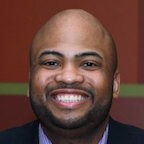Researchers at Baylor University, the University of Chicago, and the University of Southern California examined the differences in attitudes and opinions of African Americans who belonged to multiracial church congregations with those of members of predominantly Black congregations.
The study’s focus was explanations for socioeconomic differences between Blacks and Whites in the United States. Previous research showed that Blacks and Hispanics point to discrimination as a cause of Black disadvantage, while Whites often emphasize personal motivation as a cause, researchers said. But inside multiracial congregations, explanations for inequality become more similar across groups, coming to resemble the views of the Whites.
 Ryon Cobb, a National Institute on Aging postdoctoral fellow at Davis School of Gerontology at the University of Southern California and the lead author of the study, stated that “for Blacks and Hispanics, affiliation with racially diverse congregations costs them a perspective on racial inequality that is distinct from their White counterparts within and outside their racially diverse congregation.”
Ryon Cobb, a National Institute on Aging postdoctoral fellow at Davis School of Gerontology at the University of Southern California and the lead author of the study, stated that “for Blacks and Hispanics, affiliation with racially diverse congregations costs them a perspective on racial inequality that is distinct from their White counterparts within and outside their racially diverse congregation.”
Dr. Cobb holds bachelor’s and master’s degrees from Indiana University in Bloomington. He earned a master’s degree and a Ph.D. in sociology at Florida State University.
Kevin Dougherty, an associate professor of sociology at Baylor University, adds that “we want to believe that multiracial congregations promote a shared, integrated identity for all. But the truth may be that many are advancing a form of Anglo-conformity instead.”
The study, “United by Faith? Race/Ethnicity, Congregational Diversity, and Explanations of Racial Inequality,” was published in the Summer 2015 issue of the journal Sociology of Religion. It may be accessed here.


It’s quite apparent that both Blacks and Latinos who belong to so-called multiracial congregations internalize the same White racist tendencies as their White congregants in an effort to be accepted. I like to describe such behavior as embracing the mindset of our ‘collective oppressor’. The fact remains, regardless of how multiracial Black and Latinos attend, they will still be viewed as a non-equal to their White counterparts. In other words, Blacks and Latinos needed to stop seeking validation from Whites because it’s an exercise in futility.
I need to read the actual studies. Several questions come to mind immediately. First of all, did the studies adequately control for the possibility that Blacks attracted to white congregations with negative attitudes towards Afro-American motivation may bring negative attitudes and feelings about Afro-Americans with them. In my experience, negative experiences and feelings etc. about Afro-Americans in general is a frequently encountered phenomenon among so-called black conservatives. Adequately measured and clearly documented data descriptive of preexisting attitudes needs to be a part of each study.
Dr. Jennings,
Really good analysis. As a current graduate student, I am learning how to provide for myself more effective analysis of published scientific research.
I question the black sample the researcher used. Here is my take. Some blacks have become socially engineered to have negative perceptions about other blacks through exposure to media entities like “CNN,” “BET” and”FOX News” that displays, overtly, black buffoonery. Thus, some blacks- in a way to disassociate themselves or sees themselves as different- will try to convert into an organization or establishment not normally frequented by blacks. Could it be that this group of black were used in the sampling? Core relevancy of this study lies solely on the sampling.
What I stated above is also true among immigrant blacks who see themselves as not apart on the African American community because of different values in education, culture, etc.
Valdea,
Thank you for your comments on our study. Our study controls for standard demographic variables (age, gender, education, etc.). Though cross-sectional data prevents us from addressing reverse causation, the demographic characteristics of blacks and latinos in multiracial congregations look very similar to the demographic characteristics of non-whites that attend religious services in racially homogenous congregations.
Here is a link to the study: https://www.academia.edu/6009010/United_by_Faith_Race_Ethnicity_Congregational_Diversity_and_Explanations_of_Racial_Inequality
Best,
rjc
as an atheist, this isn’t surprising. religiosity in itself encourages anti-black sentiment — especially as practiced in the deeply racist, white supremacist united states. white supremacy and social control are the goals of organized religion.
Why do Blacks join these multi-racial groups to begin with. Perhaps these already have these views before joining. If attitudes are indeed changed, is it based upon what Whites say or gathered more by osmosis?
The summary of the study does not reveal age demographics nor the Christian denomination(s). Older blacks tend to see integration as positive having come to age during the Civil Rights Era.. They would not see belonging to a congregation composed of blacks and whites as a pejorative. Self-motivation is basic for any achievement (whites); discrimination is the basis for low achievement (blacks). Theses ideas are not opposites; they are correlates. The blacks who attend those churches understand that correlation and are not simply subject to one simplistic view of non-achievement, which limits people of color because many do not believe that their achiev.ment is. undermined by ‘others”.